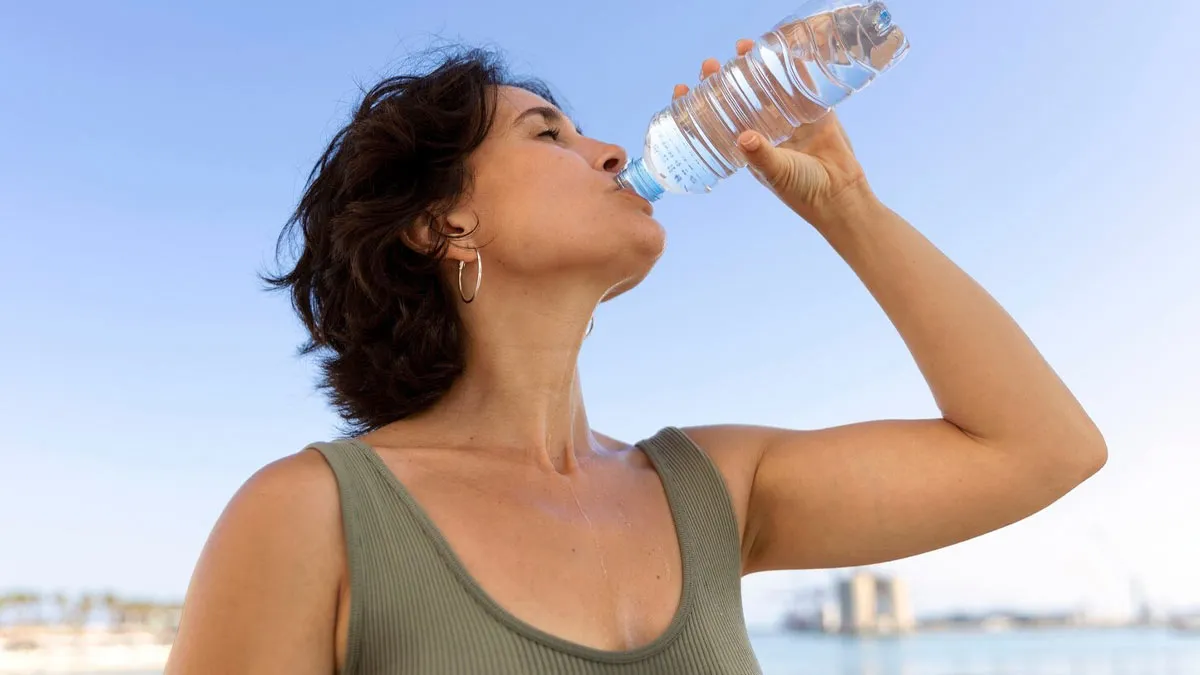
When we think of health, we often think of diet and exercise. But there’s one element we tend to underestimate: water. Hydration is so much more than satisfying thirst; it's an essential foundation of our health, affecting everything from the appearance of our skin to the functioning of our brain and gut. And studies repeatedly demonstrate that even mild dehydration can impact mood, digestion, and the natural radiance of the skin.
Table of Content:-
Hydration and Skin: The Glow from Within

Your skin is the largest organ of your body, and like any organ, it relies heavily on water. Well-hydrated skin maintains elasticity, suppleness, and resilience, making it look healthier and more youthful.
Dehydration, however, will make the skin look dull, dry, and more susceptible to fine lines. A 2015 study in Clinical, Cosmetic and Investigational Dermatology revealed that individuals who drank more water experienced tangible improvements in the hydration and overall appearance of their skin. Topical moisturisers affect the skin's surface, whereas water affects the skin from the inside, enhancing circulation and allowing nutrients to travel further to the skin cells.
During humid weather, the skin tends to have trouble with oily skin and pores that are clogged, but that doesn't mean that proper hydration is less crucial. Proper water intake balances the production of oil and maintains the skin barrier, which is critical when it comes to shielding the skin from pollution, bacteria, and environmental stressors.
Also Read: Expert Shares Why You Should Drink Water Before Brushing Your Teeth Every Morning
Hydration and Mood: Why Water Impacts Mental Well-being
We often overlook how water affects the brain. Since our brain is made up of nearly 75% water, even mild dehydration can have a direct impact on cognitive function and emotional health.
A 2012 study found that female participants who were only 1.36% dehydrated had poorer mood, greater fatigue, and trouble concentrating. Likewise, a 2018 large population study discovered higher water consumption was associated with decreased anxiety and depression risk in more than 3,000 adults.
So, if you’ve been feeling unusually irritable or foggy-headed, it may not just be stress or lack of sleep, dehydration could be a factor. Drinking water throughout the day helps regulate neurotransmitters, supports energy production in the brain, and maintains emotional balance.
Hydration and Digestion: Keeping the Gut on Track

Digestion is one of the body's most hydration-reliant processes. Water is crucial in the breakdown of food, nutrient absorption, and waste movement through the intestines. When there is not enough fluid, digestion is slowed down and constipation, bloating, and discomfort result.
The colon, specifically, uses water to soften stool. The American Journal of Gastroenterology states that individuals who do not consume enough water are much more likely to have problems with constipation. Hydration also helps keep the lining of the stomach healthy and maintains a balance of gut bacteria, which is important for overall digestive health.
Interestingly, warm water has been found to aid digestion even more effectively by stimulating intestinal contractions, while cold water can sometimes slow down digestion temporarily. Regardless of temperature, consistent fluid intake is the key.
Also Read: Expert Approved 5 Foods That Hydrate You More Than Water
How Much Water Do You Really Need?
-1755605980516.jpg)
The "8 glasses a day" standard is a useful rule of thumb, though hydration requirements differ based on age, environment, activity level, and overall health. The National Academies of Sciences, Engineering, and Medicine suggest approximately 3.7 liters (for males) and 2.7 liters (for females) of total water consumption daily, including fluids in food as well as beverages.
Fruit and vegetables like cucumbers, watermelon, oranges, and spinach are great sources of water as well, playing a big role in your hydration. Herbal tea, coconut water, and soups can provide variety as well as complement your fluid intake.
Tips to Stay Hydrated Daily
- Begin your day with water: Have a glass immediately after waking to get your hydration going.
- Carry a water bottle with you: Having water nearby makes it convenient to sip throughout the day.
- Reminder: Use phone alarms or applications to remind yourself to drink throughout the day.
- Flavour it up: Add lemon, cucumber, or berries to make the water taste better.
[Disclaimer: This article contains information for informational purposes only. Hence, we advise you to consult your professional if you are dealing with any health issue to avoid complications.]
Also watch this video
Read Next
Are You A Gamer Or A Metaverse User? Don't Skip These Tips If You Want To Protect Your Eyes
How we keep this article up to date:
We work with experts and keep a close eye on the latest in health and wellness. Whenever there is a new research or helpful information, we update our articles with accurate and useful advice.
Current Version